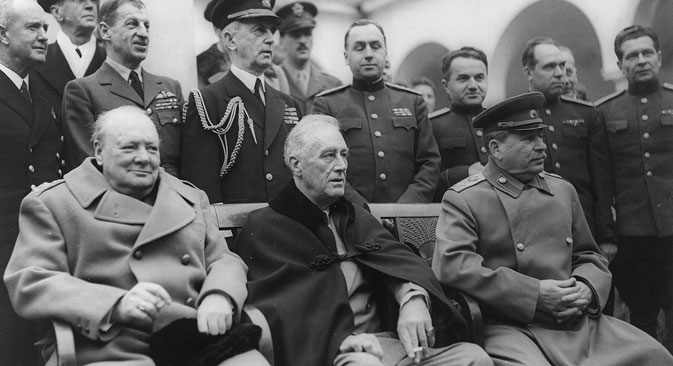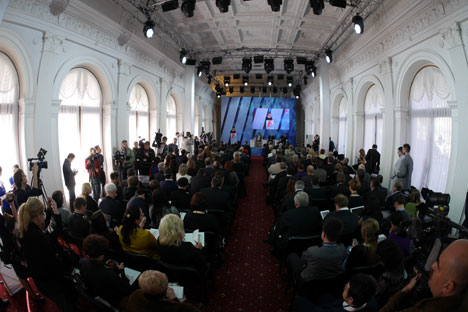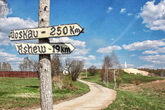70 years on, does the world need another Yalta?

Yalta Conference in February 1945 with (from left to right) Winston Churchill, Franklin D. Roosevelt and Joseph Stalin. Source: U. S. Signal Corps/Library of Congress , Franklin D. Roosevelt Library & Museum
At the Yalta Conference, which took place 70 years ago this week, Soviet leader Joseph Stalin, U.S. President Franklin Roosevelt and British Prime Minister Winston Churchill took on the ambitious challenge of creating a geopolitical system that would prevent major global conflicts.
From Feb. 4-11, the three leaders met at the Livadia Palace in Crimea and hammered out plans for the United Nations, as well as the division of Europe into the spheres of influence that defined the post-World War II era. In remembering the conference, several Russian historians expressed their opinion that the kind of openness and leadership shown at Yalta could be useful for resolving the geopolitical conflicts facing Europe today.
Miroslav Morozov, Chief Researcher of the Institute of Military History of the Academy of the General Staff of the Russian Armed Forces, said that while Stalin, Churchill and Roosevelt had their own agendas going into the Yalta meeting, they were open to compromise, which made the success of the conference possible.
Morozov called compromise the “decisive factor” in the discussions. "The ability to find a compromise allowed the leaders of countries that were part of the anti-Hitler coalition, to make important decisions, which became the basis for a lasting peace,” Morozov said, according to Russian news agency TASS.
Another military historian, Vitaly Bogdanov, agreed that compromise was key to the meeting, and that the need for cooperation was clear before the discussions began. Soviet officials carefully prepared their proposals for the conference in a way that would not alienate the West, while Roosevelt was betting on the influence of the strong U.S. economy to open up the Soviet Union after the war, Bogdanov said.
One of the major compromises reached at Yalta was on the design of the UN Security Council. At Yalta, the decision was made to allow members of the Security Council to veto actions by the council. Roosevelt had proposed that issues before the Council be resolved by a majority of votes, but Stalin argued that this was unreasonable because the majority of the Security Council members were capitalist countries.
Yalta 2.0 ?
According to Mikhail Myakhkov, a professor at the Moscow State Institute of International Relations (MGIMO), in order to solve the current problems facing the global community, a “new Yalta” is needed to set the “rules of the game” in international relations and to reassert the importance of the UN.

At the conference Yalta-1945: The Past, Present and Future. Source: Sergei Mikheev / RG
Speaking at the conference Yalta-1945: The Past, Present and Future,” which took place at the Lividia Palace on Feb. 4, British political scientist Richard Sakwa said that the lesson of Yalta for today is that we need to move beyond Yalta and establish a truly plural world order.
“We must find a more secure system of world order and European stability,” Sakwa said, according to RIA Novosti. “We are obligated to use diplomacy to find the best way forward.
Read more: Yalta Conference of 1945 sets example for dialogue between world leaders - State Duma speaker>>>
All rights reserved by Rossiyskaya Gazeta.
Subscribe
to our newsletter!
Get the week's best stories straight to your inbox
